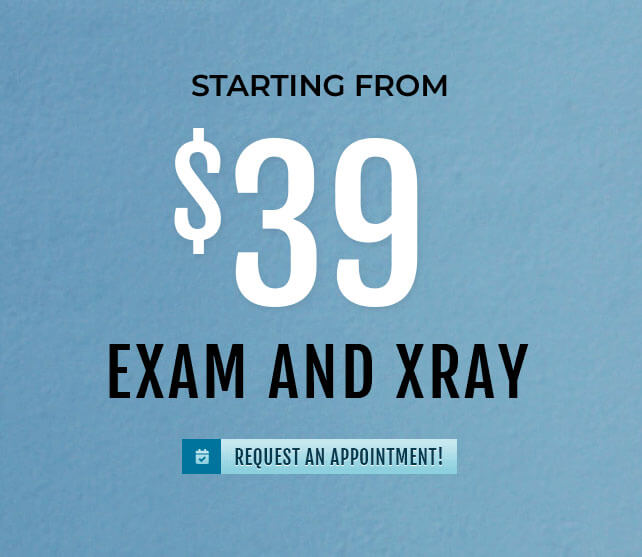Having a tooth removed is a significant decision. However, at times, it will prove the only path forward to protecting your oral health. We offer professional tooth extraction and wisdom teeth removal for patients of all ages at our practice in Upland. Reach out to Alta Dental Care to set up an appointment to see if you need an extraction to preserve your oral health.
Why Have a Tooth Extraction?
No one wants to have a tooth taken out. But tooth extraction may be the only solution in some cases. Usually, we recommend tooth extraction if a patient meets one of the following more common criteria:
- Has a severely damaged tooth (due to decay or injury)
- Has an infection that is too severe to safely treat
- Has crowding or issues with the tooth’s position
What About Wisdom Teeth Removal?
The most common type of tooth extraction is wisdom teeth removal. Also called your third molars, wisdom teeth are the last teeth to grow in. However, many people do not have enough space in their mouth for the teeth to grow in properly. This can lead to crowding, impaction, or a range of other issues as the teeth try to grow in. Wisdom teeth removal quickly solves the issues.
What Is a Tooth Extraction Procedure Like?
- X-rays: We may first need to take X-rays (especially for wisdom teeth) to see whether you need extraction or not. In other cases, a physical exam is sufficient to determine next steps.
- Anesthetic: Most tooth extractions can be done with only local anesthetic, which prevents you from feeling any pain. For more complex cases, patients may receive stronger sedation.
- Incision & Removal: The surgeon opens the gum to fully access the tooth and removes it. This usually only takes a few minutes for simple cases.
- Closing the Gum: Depending on your situation, you may receive stitches to close the gums. From start to finish, an extraction typically takes between 10 and 30 minutes. Complex cases may take up to an hour or longer.
What are the signs that I need a tooth extraction?
Some signs you might need an extraction include:
- Severe, persistent tooth pain
- Notable swelling or an infection
- Loose teeth
- Gum recession or deep pockets
- Cracked or broken tooth below the gumline
- Impacted wisdom teeth
- Overcrowding or bite issues
- Repeated failed root canals
How long is the recovery?
Healing from tooth extraction takes very little time. Simple extractions can heal in only a couple of days. Wisdom teeth removal usually involves taking a couple of days off from school or work.
In both cases, swelling and discomfort are normal. The swelling is worst for the first few days, but usually resolves by the 1-week mark. Any discomfort usually remains mild enough to be managed with over-the-counter pain relievers.
What is the aftercare for tooth extraction?
Following your tooth extraction, you will need to take a few key steps. Some of the main ones include:
Controlling Bleeding: Bite on gauze for 30–60 minutes and avoid disturbing the blood clot.
Resting and Staying Elevated:
- Take it easy for 24 hours and keep your head elevated when lying down.
- Managing Pain & Swelling: Use cold compresses and take pain relievers as directed.
- Eating Soft Foods: Stick to cool, soft foods; avoid straws, hot foods, and hard or crunchy items.
- Avoid Smoking & Alcohol: Refrain from smoking, vaping, and drinking alcohol for at least 72 hours.
- Keeping It Clean: Gently rinse with salt water starting day 2 and avoid brushing near the site on day 1.
Can I replace an extracted tooth?
Yes, you certainly can. We offer several pathways to getting your smile back to 100%. The ideal option for replacing a single tooth will be dental implants. In some cases, you can have an implant placed immediately after your tooth extraction to streamline the process. Other options include dental implants and dentures.
Is tooth extraction painful?
Pop culture can make tooth extraction look frightening. In truth, the procedure takes a few minutes and is completely painless. Some discomfort and mild pain are normal afterward, especially for more complex cases. However, this should resolve within a few days.
Can I have wisdom teeth removal as an adult?
Wisdom teeth removal usually happens during adolescence. However, you can also have the procedure as an adult. If your wisdom teeth are causing you issues, then you can have them taken out regardless of your age.
Does insurance cover tooth extraction and wisdom teeth removal?
Most dental insurance plans will provide coverage for tooth extraction and wisdom teeth removal. However, the amount of coverage will depend on your plan’s details. When planning to have a tooth extracted, we recommend calling your insurance to see what your plan will cover.
How much does tooth extraction cost?
The cost of a tooth extraction depends on the complexity of the procedure. It also factors in the number of teeth to be removed. So a single simple tooth extraction will be less than removing four impacted wisdom teeth. We will go over the specifics of your individual quote during the appointment to ensure transparent pricing.
Schedule Your Appointment Today
For your convenience, request an appointment online. Or call us to discuss further tooth extraction costs and how we can help you with your dental problems. Call our Upland dentist today at 909-451-8300.



